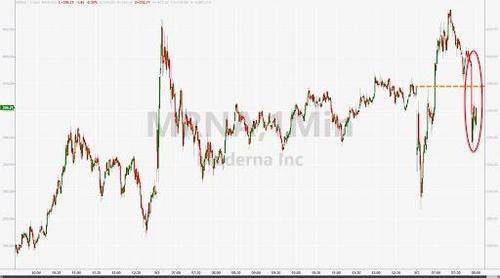After AstraZeneca’s $39 billion acquisition of Alexion, another rare disease drugmaker has become the target of a takeover.
Thursday, Swedish biotech Sobi said it has received an offer from private equity firm Advent International and Singapore’s sovereign wealth fund, GIC, to buy out the company for SEK 69.4 billion (about $8 billion).
The purchase price, at SEK 235 per Sobi share in cash, represents a 34.5% mark-up from the firm’s closing price on Nasdaq Stockholm on Aug. 25, before Bloomberg reported Advent’s interest in a potential deal for Sobi.
Sobi’s board unanimously recommends its shareholders approve the transaction partly because its largest shareholder, the Wallenberg family-controlled Investor AB, has signed off on the accord in a separate agreement with the buyer. The prominent Swedish investment shop currently holds a 35.4% stake in Sobi.
But Investor AB’s backing isn’t unconditional. Its support will become void if a competing offer emerges at a per-share price of SEK 251 or more and wins unanimous recommendation from the Sobi board, the holding company said in a separate statement.
The Sobi deal draws comparisons to AstraZeneca’s recent Alexion acquisition. In Alexion, AZ got a rare disease portfolio—including complement inhibitors Soliris and Ultomiris—and valuable scientific know-how in immunology. Sobi is also a rare disease player, with immunology being one of its two focus areas.
Sobi just so happens to be a direct competitor to AZ in its newly acquired complement inhibitor franchise. Through a licensing deal last fall, Sobi gained ex-U.S. commercial rights to Apellis’ C3 inhibitor Empaveli. The drug earned an FDA go-ahead in paroxysmal nocturnal hemoglobinuria after beating Soliris head-to-head in improving patients’ hemoglobin levels.
Elsewhere in immunology, Sobi sells IL-1Ra inhibitor Kineret for a slate of inflammatory diseases, including rheumatoid arthritis, as well as rare conditions such as cryopyrin-associated periodic syndromes. In 2020, the drug raked in sales of SEK 2.08 billion ($242 million), up 35% year over year.
Through a 2019 deal with Novimmune, Sobi gained full control of anti-interferon-gamma antibody Gamifant shortly after it won FDA approval for the rare disease of primary hemophagocytic lymphohistiocytosis (pHLH). And last year, Sobi picked up low blood platelet med Doptelet via a $915 million acquisition of Dova Pharmaceuticals to beef up the other arm of its business, hematology.
But both acquisitions suffered setbacks in 2020. The European Medicines Agency rejected Gamifant in pHLH twice, and Doptelet flopped a phase 3 testing for chemotherapy-induced thrombocytopenia. Sobi is still aiming to expand Gamifant in secondary HLH and acute graft failure.
Last year, Sobi’s revenues climbed 8% year over year at constant currencies to SEK 15.3 billion ($1.78 billion).
Sobi has been a rumored target for M&A before this buyout interest. Back in 2015, the Swedish pharma reportedly rejected buyout propositions from Pfizer and Biogen because it said the offer price was too low.
